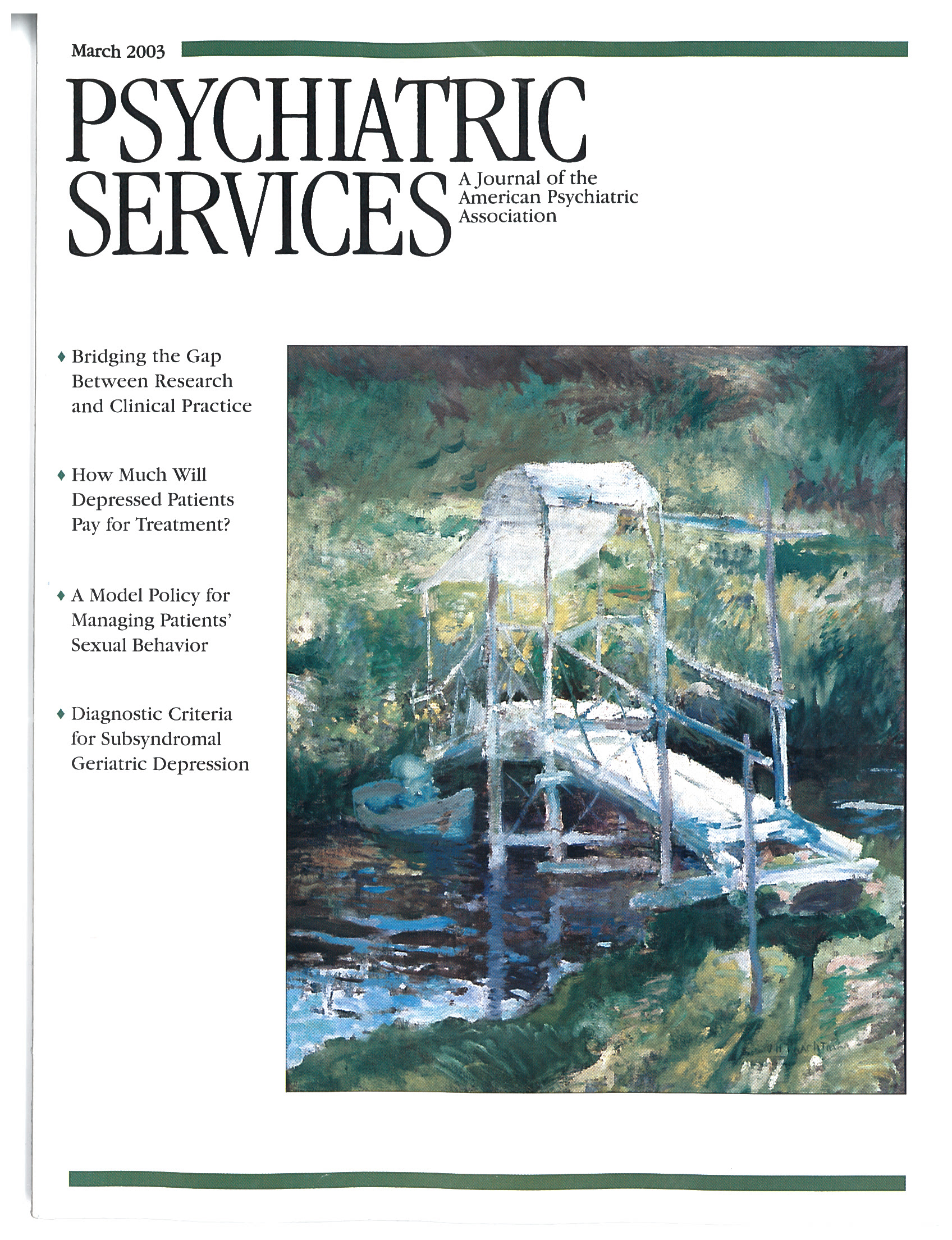Use of Substance Abuse Treatment Services by Persons With Mental Health and Substance Use Problems
Abstract
OBJECTIVES: This study provided population estimates of mental syndromes and substance use problems and examined whether the co-occurrence of mental health and substance use problems was associated with the use of substance abuse treatment services. METHODS: Study data were drawn from the 1997 National Household Survey on Drug Abuse. RESULTS: Of the total sample of 16,661 adults, 2 percent reported using services for alcohol or drug use problems in the previous year. Among the 3,474 (17 percent) who reported at least one alcohol or drug use problem, 6 percent used substance abuse services. Only 4 percent of persons who reported substance use problems alone received any substance abuse treatment service in the previous year. Only 3 percent of persons who reported alcohol use problems alone received such services. Among persons with one or more substance use problems, the prevalence of service use was 11 percent among persons who reported one co-occurring mental syndrome and 18 percent among those who reported two or more mental syndromes. Multiple logistic regression analyses identified a number of subgroups who might have needed substance abuse services but did not receive them, including women, Asians and Pacific Islanders, college graduates, persons employed full-time, persons who abused alcohol only, and persons with substance use problems who reported no coexisting mental syndromes. CONCLUSIONS: The rate of help seeking among persons with alcohol use problems is low, which is a public health concern.



